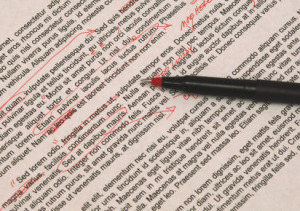 Periodically a new blog post or article surfaces that complains bitterly about the proliferation of indie authors, the inundation of the unwashed that is swamping Amazon and muddying the waters for the traditionally-published. This almost always boils down to two major points: (1) just ANYbody can self-publish (which obviously is very true but sounds suspiciously like sour grapes to me) and (2) indie books sometimes (maybe more than sometimes) need more editing than they get. Very often these posts bleat about the fact that if authors wait and work to be picked up by a traditional house, they will have the benefit of thoughtful, detailed, professional editing and will, therefore, produce better books.
Periodically a new blog post or article surfaces that complains bitterly about the proliferation of indie authors, the inundation of the unwashed that is swamping Amazon and muddying the waters for the traditionally-published. This almost always boils down to two major points: (1) just ANYbody can self-publish (which obviously is very true but sounds suspiciously like sour grapes to me) and (2) indie books sometimes (maybe more than sometimes) need more editing than they get. Very often these posts bleat about the fact that if authors wait and work to be picked up by a traditional house, they will have the benefit of thoughtful, detailed, professional editing and will, therefore, produce better books.
I beg to differ.
My first book was published in 1984 by a New York house. The book was complete when they optioned it and they never suggested so much as a comma to me. The fact that they accepted the manuscript verbatim and had zero editorial suggestions seemed like a silent nod of approval, and on good days I could believe that if I wanted. On bad days, I might just believe they deemed the book “good enough” and were not interested in spending time polishing it. When I got a letter from them saying I needed to add 70 pages to get to the proper page count, there was no hint of what the content should be. Story line, plot points or character development all seemed to be of no concern whatsoever. I duly added the pages, resubmitted them, and the book went to publication without any other changes. Even my few typos went in exactly as my fingers mangled them. Continue reading “The Editing Myth”



